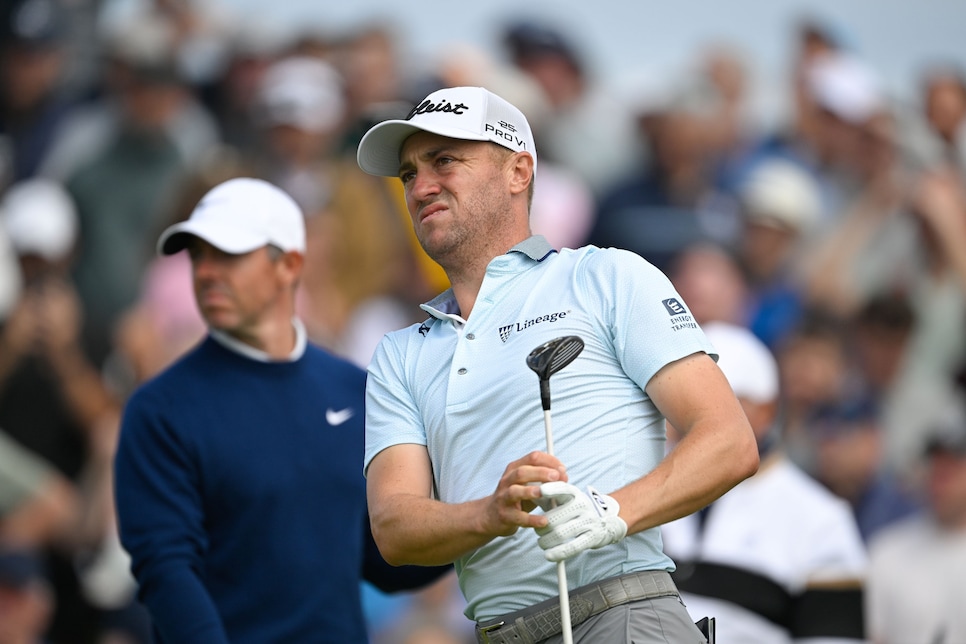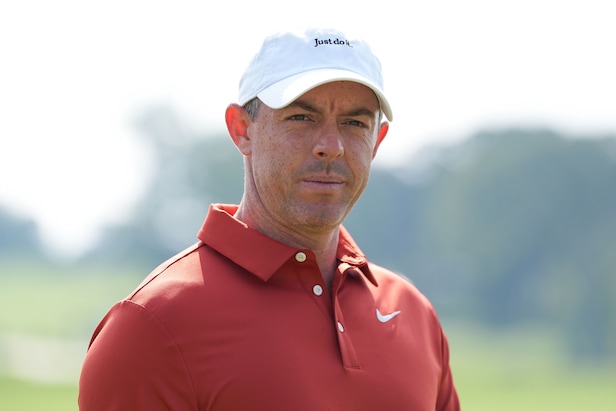[PHOTOS: Ben Jared]
Viewed through the prism of Brian Rolapp’s press conference in Atlanta on Wednesday morning, the 2026 PGA Tour schedule that was released on Tuesday could be the last that resembles a familiar make-up in its order and competitive model.
RELATED: Change is coming: 5 major takeaways from new PGA Tour CEO Brian Rolapp’s first address
Bringing what he called “a clean-sheet mentality” to his role as the new PGA Tour chief executive, Rolapp has already formed a Future Competition Committee charged with making “significant” changes to the tour and “moving aggressively” to do it.
Obviously, the tour’s plans for next season were set in motion long before Rolapp officially took over last month for commissioner Jay Monahan, so the 2026 schedule features few changes from the season-opening Sentry through to the 20th edition of the FedEx Cup Playoffs and again ending at the Tour Championship at East Lake Golf Club. The most significant development is the addition of the Miami Championship in early May at Trump National Doral, slated to be the ninth signature event in the 35-tournament schedule.
That means that more than a quarter of the 32-tournament regular season will be comprised of limited-field events offering purses of $US20 million and higher. It also translates to a potentially more hectic load for the game’s top players. Starting with the Masters in early April through until the Travelers Championship in June after the US Open, eight of 13 events are majors or signature events. A six-week run from Augusta to the PGA Championship features only two “swing” events.
The rich get richer. And busier… if they plan to appear in all of them.
“It’s tough. I definitely understand it,” said Justin Thomas, the two-time PGA champion, of the condensed schedule of bigger tournaments. “It definitely has felt a little bunched over the past couple of years, honestly. I’m not sure how different it could feel, you know what I mean? But it’s something that it’s always a work in progress.
“I like the fact that the tour is looking at it in the sense of: here we are, this is what we have this year, and we’re just going to keep trying to change it for the better, as opposed to just putting it off until however many years until we feel like we have the perfect model, perfect fit kind of thing.”
“It would be a great time to be playing well, wouldn’t it? It would be a great time to come into form,” said Tommy Fleetwood, referring to a stretch that features the Masters, RBC Heritage, Zurich Classic team event, Miami Championship, Truist Championship (with an opposite-field event in Myrtle Beach) and the PGA.
But would Fleetwood play in all of them? Rolapp might want to pay attention here.
“I think we all have an option to play or not play whatever we want, so you can schedule it however you want,” the Englishman said. “If you want to play all of them, what an amazing stretch of opportunities for you in terms of big events. Great thing about golf is all of those weeks can completely change your year and change your career.
“Yeah, it’ll be tough, and it’ll be busy. But again, we all have the option of scheduling it however we want in terms of what we play, what we don’t play, how we feel like our bodies will cope with it, how we feel like we’ll mentally cope with it.”
And what about Fleetwood’s Ryder Cup teammate, reigning Masters champion Rory McIlroy? The world’s No.2-ranked player was instrumental in helping develop the signature-event concept but then skipped three of them this year – the Sentry, RBC Heritage (the week after winning at Augusta) and the Memorial Tournament. Then he opted out of the first leg of the FedEx Cup Playoffs, the FedEx St Jude Championship, knowing he already was a lock for this week’s $US40 million finale.
He wasn’t the only high-profile player to sit one out – world No.1 Scottie Scheffler passed on the Travelers Championship.
“I’ll always look at the schedule at the start of the year and see what best fits me and my life and everything else that I sort of do, whether it’s with family or other opportunities that I’m pursuing outside of golf,” McIlroy said. “This year, that meant skipping a few signature events. I might skip less next year. I might skip the same amount, I don’t know. The luxury of being a PGA Tour player is we are free to pick and choose our schedule for the most part, and I took advantage of that this year, and I’ll continue to take advantage of that for as long as I can.”

Of course, the 30-man field for the Tour Championship is filled with players who will benefit from yet another signature event in 2026, one that offers not only a $US20 million purse, but also elevated FedEx Cup points (with 700 points for the winner as opposed to 500 in swing events). The “have-nots”, for lack of a better term, do have opportunities to play their way into the signature tournaments, but with only 100 tour cards offered – a reduction from 125 that kicked in this season – their prospects for remaining on the tour are less certain.
One player who can speak to that is Harris English, who returns to the Tour Championship for the first time since 2021. He began the year not eligible for signature events beyond the AT&T Pebble Beach Pro-Am and Genesis Invitational – via finishing in the top 60 in the points standings at the end of the early (or “Fall”) portion of the schedule – but won the Farmers Insurance Open in January, which ensured his entry into those tournaments.
“Yeah, it’s going to suck not being in those events,” said English, who also parlayed his elevated status to an automatic berth on the US Ryder Cup team, “but kind of how the PGA Tour has set itself up is if you want to get in those tournaments, you’ve got to play [well]. You’ve got to beat people. You’ve got to play better. I was a little bit in that position last year of I barely missed out on getting in the top 50. I didn’t have a good round at Memphis last year. I had to play a lot in the [autumn] to stay in that top 60 because I wanted to get in the first two signature events, and I knew my schedule for that year wasn’t set, so I had to go out and get it.
“If you’re playing good, you get in the best tournaments. I love how there’s still a pathway there and they’re going to continue that.”
English, 36, said he intended to play in all of the 2026 signature events. It remains to be seen how many players will join him.

